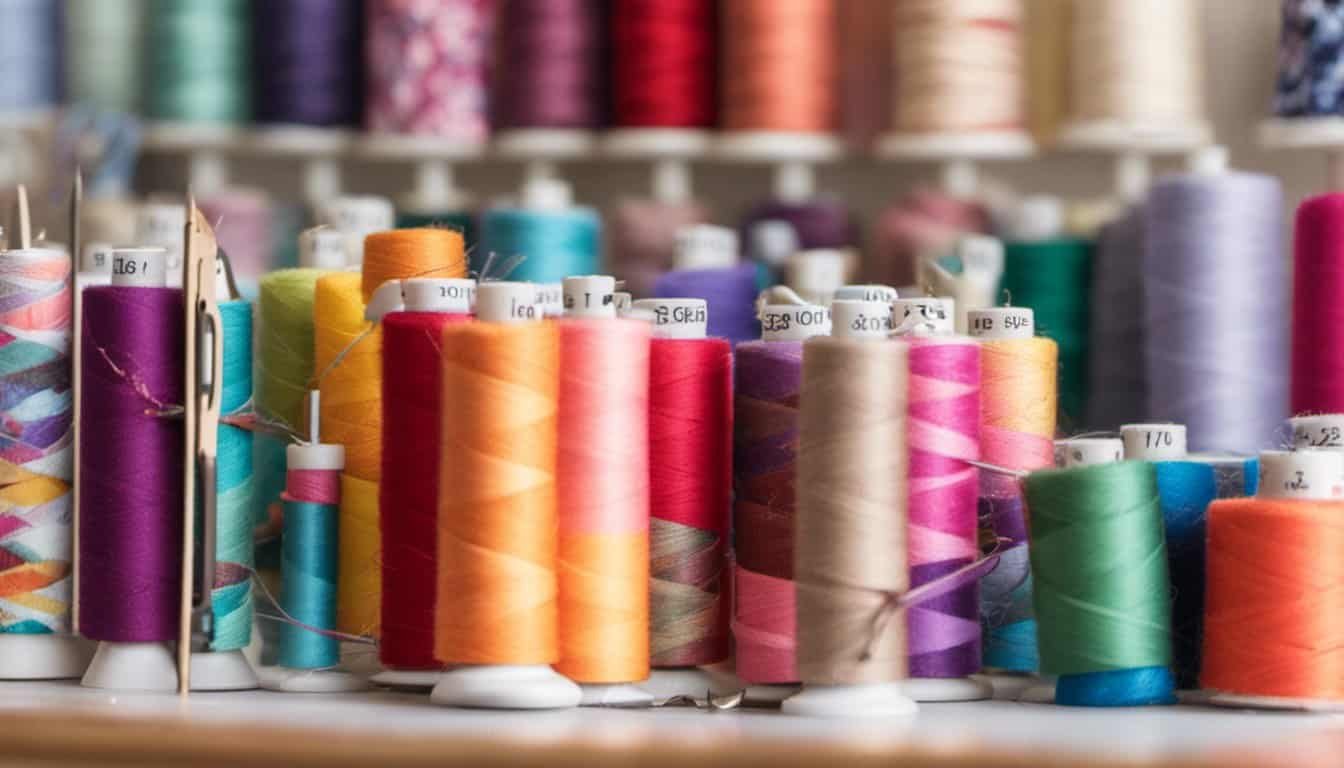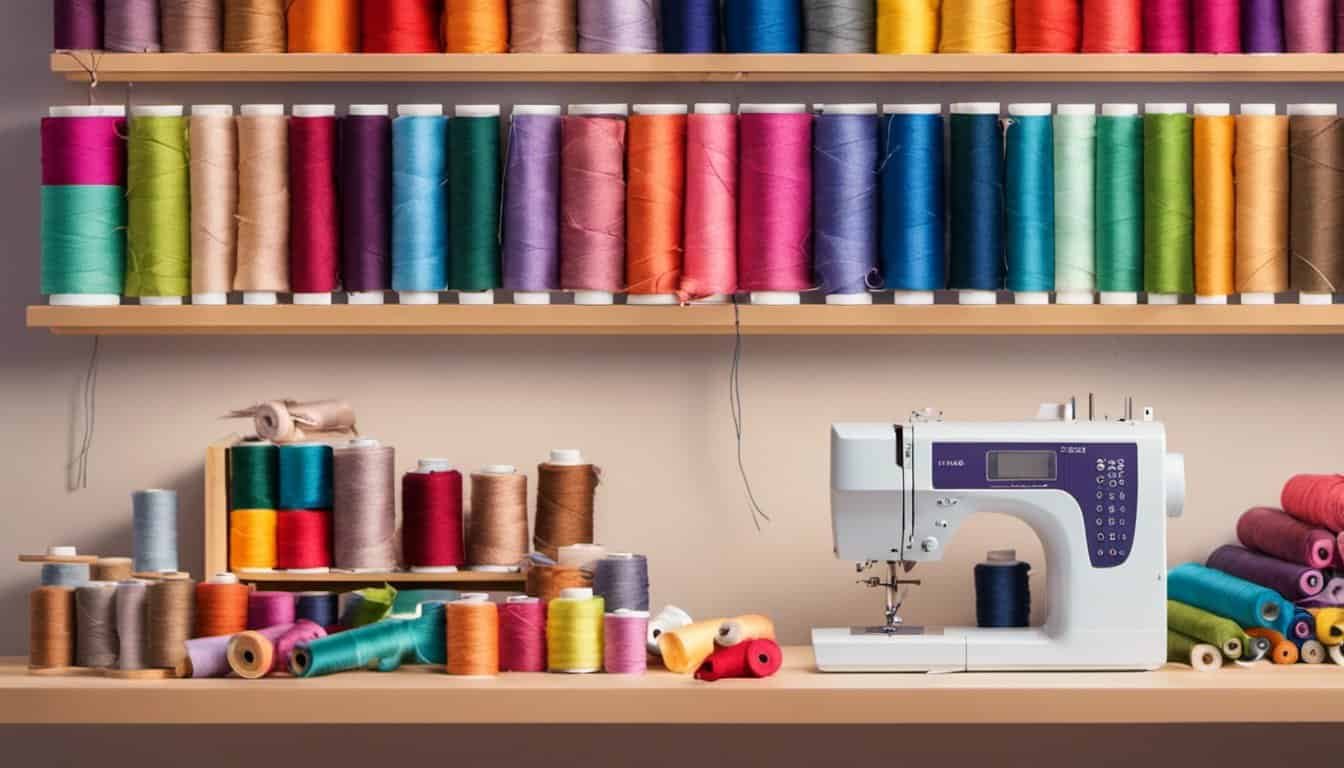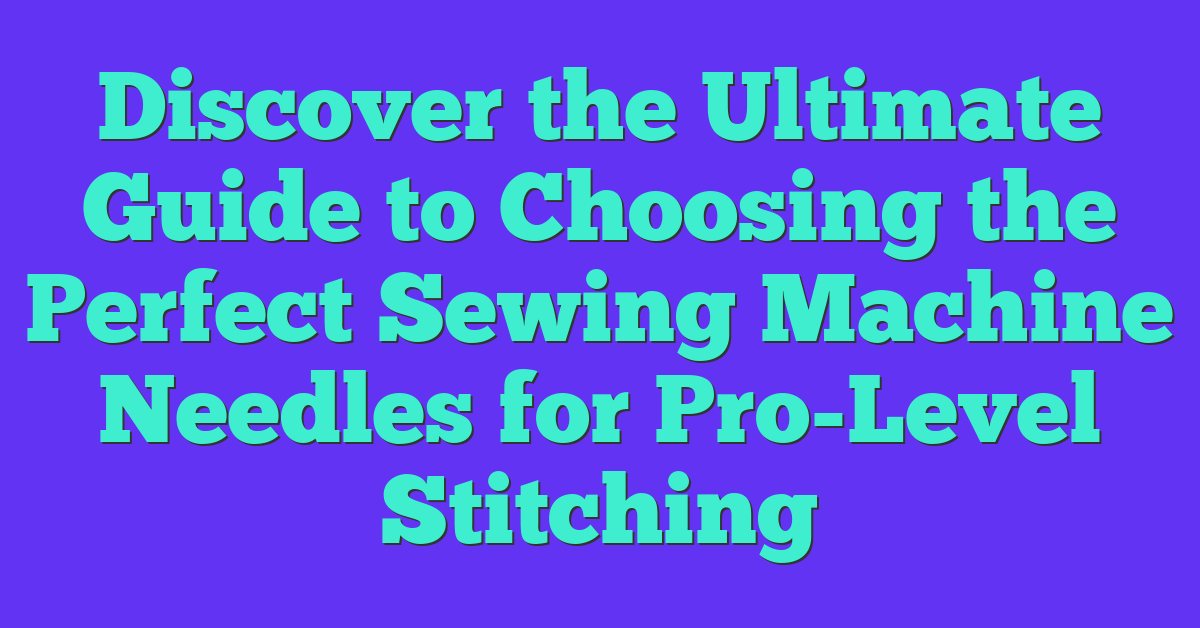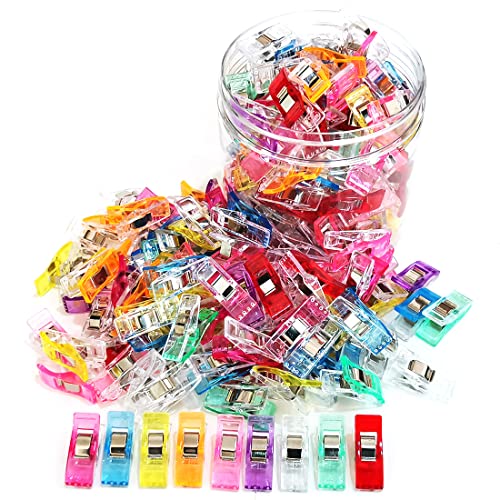Are you a beginner in the world of sewing? Are you feeling overwhelmed by the wide variety of needles available for sewing machines? Don’t worry, we’ve got you covered! In this article, we’ll help you navigate the needle aisle and choose the right needles for your sewing machine. Whether you’re working with delicate fabrics or heavy-duty materials, we’ll provide you with the essential information you need to make an informed decision. Let’s get started on your needle-buying journey!
When it comes to sewing, using the right needle can make all the difference in the final outcome of your project. But with so many options out there, how do you know which needles to buy for your sewing machine? Don’t fret! In this article, we’ll break down the different types of needles available and explain their specific uses. From universal needles to ballpoint needles, we’ll help you understand the characteristics and benefits of each type. By the end, you’ll feel confident in selecting the perfect needles for your sewing machine.
Understanding Different Types of Needles
When it comes to sewing, choosing the right needle for your sewing machine is crucial. Each needle has its own unique purpose and is designed to work with specific types of fabrics and projects. Understanding the different types of needles available will help you make the right choice for your sewing needs. Let’s dive in!
- Universal Needles: These needles are the jack-of-all-trades in the sewing world. They work well with most woven and knit fabrics, making them a great choice for general sewing projects. Universal needles come in various sizes, so make sure to choose the appropriate size for your fabric weight.
- Ballpoint Needles: If you frequently sew with knit fabrics, ballpoint needles are a must-have. The rounded tip of these needles slides between the fabric threads rather than piercing them, preventing snags and runs. Use ballpoint needles for sewing stretchy materials like jersey, interlock, and spandex.
- Sharps Needles: Ideal for sewing tightly woven fabrics, sharps needles have a slim, sharp point that easily pierces through the fabric. These needles work well with lightweight cotton, linen, silk, and other finely woven fabrics. If you’re working on delicate projects like heirloom sewing or fine embroidery, sharps needles are a great choice.
- Jeans/Denim Needles: As the name suggests, jeans needles are specially designed for sewing heavyweight fabrics like denim and canvas. These needles have a strong, slightly rounded point that can handle the thickness of denim without breaking. Whether you’re hemming jeans or sewing sturdy bags, jeans needles will give you the durability and strength you need.
- Leather Needles: Sewing leather or faux leather requires a needle that can penetrate the material without leaving visible holes. That’s where leather needles come in. With their chisel-shaped point, these needles effortlessly glide through leather, suede, and other thick materials. When working on leather projects, make sure to use the appropriate needle size for the leather’s thickness.
Remember, using the right needle for your sewing project will give you better results and extend the life of your machine. So, before you start your next sewing endeavor, take a moment to choose the needle that matches your fabric and project requirements.
Choosing the Right Needle for Your Fabric
When it comes to sewing, choosing the right needle for your fabric is crucial in achieving professional and polished results. Each fabric type requires a specific needle to ensure smooth stitching and prevent any damage to the fabric. Here are some tips to help you select the perfect needle for your sewing machine:
1. Universal Needles: These needles are the most versatile and can be used for a wide range of fabrics. They have a slightly rounded point which makes them suitable for both woven and knit fabrics. If you’re a beginner or don’t have much experience with different types of fabrics, starting with universal needles is a safe bet.
2. Ballpoint Needles: If you’re working with stretchy or knit fabrics like jersey or spandex, ballpoint needles are a must-have. The rounded tip of these needles allows them to glide between the fabric’s fibers without cutting or snagging them, ensuring that your stitches won’t cause any damage to the fabric.
3. Sharps Needles: If you’re sewing with tightly woven fabrics like silk or satin, sharps needles are ideal. With their sharp, fine point, they can easily penetrate through the fabric without leaving visible holes or puckering. They are also great for sewing lightweight fabrics like chiffon or organza.
4. Jeans/Denim Needles: When tackling heavyweight fabrics like denim, canvas, or upholstery, jeans or denim needles are your go-to choice. These needles have a strong, sharp point that can handle the thick layers of dense fabrics, allowing you to sew sturdy and durable seams.
5. Leather Needles: If you’re venturing into leatherwork or working with faux leather, leather needles are a must. These needles have a chisel-like point, designed to cut through the tough material without causing any damage. They ensure clean and precise stitching on leather projects.
Different Needle Sizes and Their Uses
Choosing the right needle size for your sewing machine is just as important as selecting the correct type of needle. The size of the needle you choose will depend on the thickness of the fabric you are working with. Let’s dive into the different needle sizes and their specific uses:
- Size 9/65: This needle size is great for lightweight fabrics such as silk and voile. It’s also perfect for delicate projects like lingerie and baby clothes. The smaller needle size ensures that you don’t create big, visible holes in your fabric.
- Size 11/75: This is a medium-sized needle that is suitable for most general sewing projects. It works well with lightweight to medium-weight fabrics such as cotton, linen, and polyester. If you’re unsure about which needle size to use, this is a safe choice.
- Size 14/90: When working with heavier fabrics like denim or twill, you’ll want to use a size 14 needle. The larger size allows the needle to penetrate the fabric easily and creates strong, secure stitches. If you’re planning to sew jeans or upholstery projects, this needle size is a must-have.
- Size 16/100: This needle size is even larger and is specifically designed for heavyweight fabrics like canvas or upholstery fabric. It has a strong shaft to handle the thickness of these fabrics and produce clean, accurate stitches.
Remember, when selecting a needle size, always keep the fabric thickness in mind. Using a needle that is too small may cause the fabric to pucker, while using a needle that is too large might result in damaged fabric or skipped stitches.
It’s also important to note that needle sizes can vary slightly depending on the manufacturer, so always double-check the packaging or consult the machine’s manual for recommendations.
Understanding Specialty Needles
When it comes to sewing, there’s more to needles than meets the eye. While universal needles can handle most fabrics, some projects require a bit of extra finesse. That’s when specialty needles come into play. Let’s dive deeper into understanding the different types of specialty needles and when to use them.

Ballpoint Needles
Ballpoint needles are designed for knit fabrics such as jersey or interlock. The rounded tip of these needles slides between the yarns of the fabric, preventing snags and runs. If you’re working with stretchy materials or creating garments like t-shirts or leggings, using a ballpoint needle will ensure smooth and even stitches.
Sharps Needles
When precision is key, reach for sharps needles. These needles have a sharp point and are suitable for woven fabrics like cotton, linen, or silk. If you’re making intricate designs or doing detailed embroidery work, sharps needles will help you achieve clean and crisp stitches.
Jeans/Denim Needles
If you’re tackling heavyweight fabrics like denim or canvas, jeans needles are your best bet. These needles have a strong and sharp point, making it easier to sew through multiple layers of thick fabric. Whether you’re repairing jeans or sewing sturdy bags, using jeans needles will ensure your stitches stay strong and secure.
Leather Needles
Working with leather requires a specialized needle. Leather needles feature a chisel-shaped point that slices through the material without tearing it. Whether you’re making leather accessories or upholstery, using a leather needle will give you clean and precise stitches.
Remember, using the right needle for your sewing project is crucial to achieving professional results. Always double-check the packaging or consult your sewing machine’s manual for needle recommendations. And don’t forget to match the needle size to the fabric thickness. Smaller numbers like 9/65 are suitable for lightweight fabrics, while larger ones like 16/100 are better for heavyweight materials.
Conclusion
« Discover the Ultimate Sewing Bee Book Collection! Unleash Your Creativity with Countless Inspirational Titles
Discover the Untapped Secrets to Earning Big as a Sewing Machine Operator – You Won’t Believe How Much Money You Could Make »
Choosing the right needles for your sewing machine is essential for achieving professional results in your sewing projects. By using the correct needle for different types of fabrics and projects, you can ensure smooth stitching and prevent damage to the fabric.
In this article, we have discussed the different types of needles available for sewing machines. These include universal needles, ballpoint needles, sharps needles, jeans/denim needles, and leather needles. Each type of needle has its specific uses, and it is important to select the right one for your fabric.
We have also talked about needle sizes and their specific uses. Remember that size 9/65 is suitable for lightweight fabrics, while size 16/100 is ideal for heavyweight fabrics. Choosing the right needle size for your fabric thickness is crucial for achieving the desired results.
Don’t forget to double-check the packaging or consult your machine’s manual for needle size recommendations. This will ensure that you are using the correct needle for your sewing machine.
Lastly, we have touched on specialty needles such as ballpoint needles for knit fabrics, sharps needles for woven fabrics, jeans/denim needles for heavyweight fabrics, and leather needles for working with leather. These specialty needles are designed to handle specific fabrics and projects, and using them will help you achieve the best results.

By following these guidelines and choosing the right needles for your sewing machine, you will be well on your way to creating beautiful and professional-looking garments and projects. Happy sewing!

















